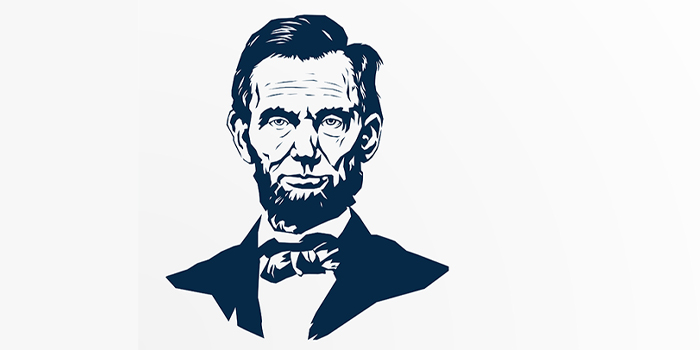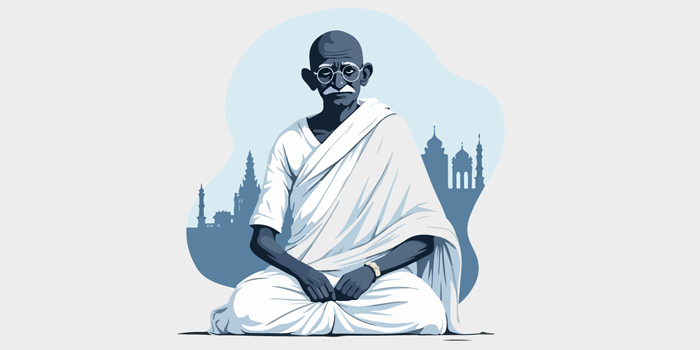Contents
Four Legendary Lawyers Who Shaped Legal History
The legal world owes much of its evolution to extraordinary individuals whose influence extends well beyond the courtroom. These renowned lawyers didn’t just shape the practice of law—they left an indelible mark on society, politics, and the global pursuit of justice. When reflecting on the greatest lawyers of all time, it’s impossible not to think of figures like Abraham Lincoln, Mahatma Gandhi, Thurgood Marshall, and Ruth Bader Ginsburg, each celebrated for their groundbreaking contributions to justice and equality.
Exploring the lives and careers of these famous lawyers offers valuable lessons for anyone aspiring to excel in the legal profession. Their journeys highlight the importance of not only mastering legal expertise but also upholding ethical principles and striving for societal change. Documentaries often delve into what it means to be regarded as the best lawyer in the world, showcasing the blend of skill, determination, and vision that defines true greatness.
Let’s take a closer look at four iconic figures whose transformative work reshaped the course of legal history.

Abraham Lincoln: The Lawyer Who Became a President
Abraham Lincoln, widely regarded as one of the most outstanding American leaders, carved an impressive path as a lawyer before ascending to the presidency as the 16th President of the United States. Known affectionately as “Honest Abe,” Lincoln’s legal career in Illinois was marked not only by his unwavering integrity and sharp intellect but also by his unique ability to connect with people from all walks of life. His time as a lawyer laid the foundation for the transformative leadership he would later bring to the nation.
Lincoln’s legal career showcased his innovative approach to the practice of law. He often represented ordinary citizens, taking on cases that spanned a variety of issues, including property disputes, contract disagreements, and criminal defense. Lincoln was renowned for his logical reasoning and ability to break down complex legal concepts into plain language that resonated with juries. His knack for storytelling and his capacity to appeal to common sense earned him the respect of clients, colleagues, and judges alike. But above all, it was his unwavering commitment to justice and fairness that defined his work and would later define his political career.
His influence as a lawyer extended beyond individual cases and hinted at the profound impact he would later have on the nation. Lincoln’s dedication to equality and fairness foreshadowed his role in shaping American history. As president, he became the central figure in the abolition of slavery and the preservation of the Union during the Civil War. His legal background informed his leadership style, enabling him to craft arguments and policies that were both morally compelling and pragmatically sound.
Abraham Lincoln’s legacy transcends his presidency, and his speeches and writings continue to inspire generations. The Gettysburg Address, for instance, captures the essence of his vision for a nation grounded in equality and justice. His ability to intertwine legal principles with the broader ideals of human rights highlights his enduring significance as both a lawyer and a statesman, leaving a legacy that continues to inspire and guide us today.
Abraham Lincoln’s journey from a self-taught frontier lawyer to one of America’s most revered presidents underscores the profound connection between the law and leadership. His story serves as a testament to the power of perseverance, moral clarity, and the pursuit of justice in shaping a legacy that continues to guide the principles of democracy and human dignity.
Mahatma Gandhi: The Lawyer Who Championed Nonviolence
Mahatma Gandhi, an Indian lawyer, political leader, and social reformer, embarked on his legal career in South Africa, where he was confronted with the stark realities of racial injustice. His experiences as a lawyer profoundly shaped his philosophy of nonviolent resistance, known as Satyagraha. These formative years witnessed Gandhi’s evolution from a young barrister into a transformative figure, whose legal and moral principles would go on to shape global struggles for justice.
One of Gandhi’s most significant contributions was his unyielding defense of civil rights. In South Africa, he represented Indian laborers and challenged discriminatory laws that oppressed marginalized communities. His advocacy went beyond courtroom arguments; he stood shoulder to shoulder with those he represented, embodying a profound commitment to justice and equality. Through his legal work, Gandhi defended individual rights and brought systemic injustices to light, giving voice to the disenfranchised.
Gandhi’s approach to law was revolutionary. He employed legal tactics to mobilize people and challenge colonial oppression. In India, his campaigns like the Salt March and the Quit India Movement were political protests and demonstrations of the transformative power of law and nonviolence. These movements redefined the role of lawyers, showing that legal professionals could be agents of profound societal change. Gandhi proved that the law could serve as a powerful instrument for collective action and moral awakening.
The legacy of Gandhi’s legal and moral philosophy continues to resonate worldwide. His emphasis on truth, justice, and nonviolence has inspired countless movements for civil rights and social justice. From Martin Luther King Jr.’s fight for racial equality in the United States to Nelson Mandela’s struggle against apartheid in South Africa, Gandhi’s principles have transcended borders, influencing leaders and communities striving for a fairer world.

Thurgood Marshall: The Architect of Civil Rights Law
Thurgood Marshall’s work as a lawyer and his role as the first African American Supreme Court Justice transformed the civil rights landscape in the United States. His tireless dedication to justice and equality, rooted in his personal experiences with racism, left an indelible mark on the nation’s legal system, dismantling systemic racial segregation and advancing the cause of civil liberties.
One of Marshall’s most significant contributions was his role as lead counsel for the NAACP in the landmark case Brown v. Board of Education. This pivotal Supreme Court decision, which Marshall argued in 1954, declared racial segregation in public schools unconstitutional, overturning the precedent set by Plessy v. Ferguson. The decision was a turning point in the Civil Rights Movement, as it not only highlighted the inherent inequalities of segregated schools but also challenged the moral fabric of institutionalized racism in America. This case became a cornerstone of the Civil Rights Movement, catalyzing nationwide efforts to achieve educational and social equality.
Marshall’s influence extended beyond education. Throughout his career, he championed a broad range of civil rights issues. He fought for voting rights, ensuring that African Americans had access to the ballot box without the barriers of discriminatory practices. His advocacy for labor rights helped secure fair treatment for workers, while his efforts in criminal justice reform addressed systemic injustices that disproportionately affected marginalized communities. His strategic legal victories, such as the Smith v. Allwright case that led to the end of the ‘white primary’ system, paved the way for future progress in the fight for equality.
As a Supreme Court Justice, Marshall’s legacy continued to flourish. Appointed in 1967, he used his position on the nation’s highest court to uphold justice, equality, and the protection of constitutional rights for all citizens. His opinions often reflected a deep understanding of the struggles faced by the underprivileged, and he consistently advocated for the expansion of civil liberties. Marshall’s tenure on the bench not only solidified his role as a guardian of justice but also instilled hope for the future of civil rights, inspiring generations of lawyers, activists, and policymakers.
Thurgood Marshall’s life and career epitomize the transformative power of law as a tool for social change. His unwavering, unyielding commitment to equality reshaped American society, ensuring that the principles of justice and fairness remain central to the nation’s legal and moral framework.
Ruth Bader Ginsburg: The Champion of Gender Equality
Ruth Bader Ginsburg, affectionately known as RBG, left an indelible mark on gender equality and women’s rights through her illustrious career as a lawyer, professor, and Supreme Court Justice. Her legacy is tireless advocacy, intellectual brilliance, and an unwavering commitment to justice, inspiring generations.
One of Ginsburg’s most transformative contributions was her role as a pioneering litigator. As a co-founder of the Women’s Rights Project at the American Civil Liberties Union (ACLU), she spearheaded efforts to challenge gender discrimination in the law. Her legal strategy was groundbreaking: she took on cases that highlighted inequality for women and men, demonstrating the pervasive harm of gender-based stereotypes. Ginsburg argued multiple landmark cases before the Supreme Court, skillfully using her legal acumen to lay the groundwork for a more equitable society.
Her impact as a Supreme Court Justice was equally profound. Appointed in 1993, Ginsburg’s opinions and dissents became pivotal in shaping discussions on equal rights and justice. She championed reproductive rights, fought against workplace discrimination, and defended access to healthcare with passion and precision. Her well-crafted dissents, often fiery and unapologetic, earned her the nickname “The Notorious RBG,” underscoring her role as a moral compass during contentious legal battles.
Beyond her legal achievements, Ginsburg emerged as a cultural icon, a beacon of resilience and progress. Her life story, marked by perseverance in adversity, resonated with countless individuals. She symbolized strength, proving that change is possible through dedication and courage. Ginsburg’s image graced books, films, and even merchandise, solidifying her status as an enduring inspiration for lawyers, activists, and anyone committed to justice.
Ruth Bader Ginsburg’s contributions transcend the courtroom. She embodies a legacy of fighting for equality, fairness, and human dignity. Her work has left a lasting imprint on the legal landscape and continues to guide those who strive to build a more just world.
From ancient Rome to modern-day courts, famous lawyers have always played a pivotal role in shaping the rule of law. The list of greatest lawyers of all time could go on endlessly, as these are just a few individuals who have left an indelible mark on the legal profession. Their unwavering dedication to justice, their clients, and their perseverance are not just inspiring, but they are the very essence of what it means to be a lawyer. Their commitment to their work, often without the benefits of modern technology or advanced legal tools, is a testament to the power of dedication in our profession. It is worth noting, however, that countless exceptional attorneys — both past and present — often go unrecognized, their stories untold in history books, and their names absent from the ranks of the most celebrated legal minds. The documentary explored the lives of the greatest lawyers of all time, shedding light on how their work reshaped legal precedents worldwide.
Yet, greatness does not always require fame. Ordinary lawyers have the power to be extraordinary in their own right through their commitment to excellence and the difference they make in their clients’ and communities’ lives. Law students dream of becoming the best lawyer in the world, inspired by those who have shaped history through their cases.
How RunSensible Empowers Lawyers: Streamline and Grow Your Practice
RunSensible empowers lawyers by offering a comprehensive suite of tools to streamline operations, improve productivity, and enhance client relationships. Its features include client relationship management (CRM) for tracking interactions and nurturing leads, case management for centralizing case details and automating workflows, and billing tools like automated invoicing, recurring payments, and payment plan options. Lawyers can save time with document automation, create legal documents using templates, and integrate seamlessly with tools like MS Word. RunSensible’s marketing tools, such as website builders and email campaigns, help firms attract and retain clients, while robust data analytics provide actionable insights to optimize performance. The platform also ensures compliance with legal standards like HIPAA, PIPEDA, and GDPR, offers secure file management, and integrates with Dropbox and other tools. RunSensible enables law firms to focus on their legal expertise while managing administrative tasks efficiently.
Disclaimer: The content provided on this blog is for informational purposes only and does not constitute legal, financial, or professional advice.







